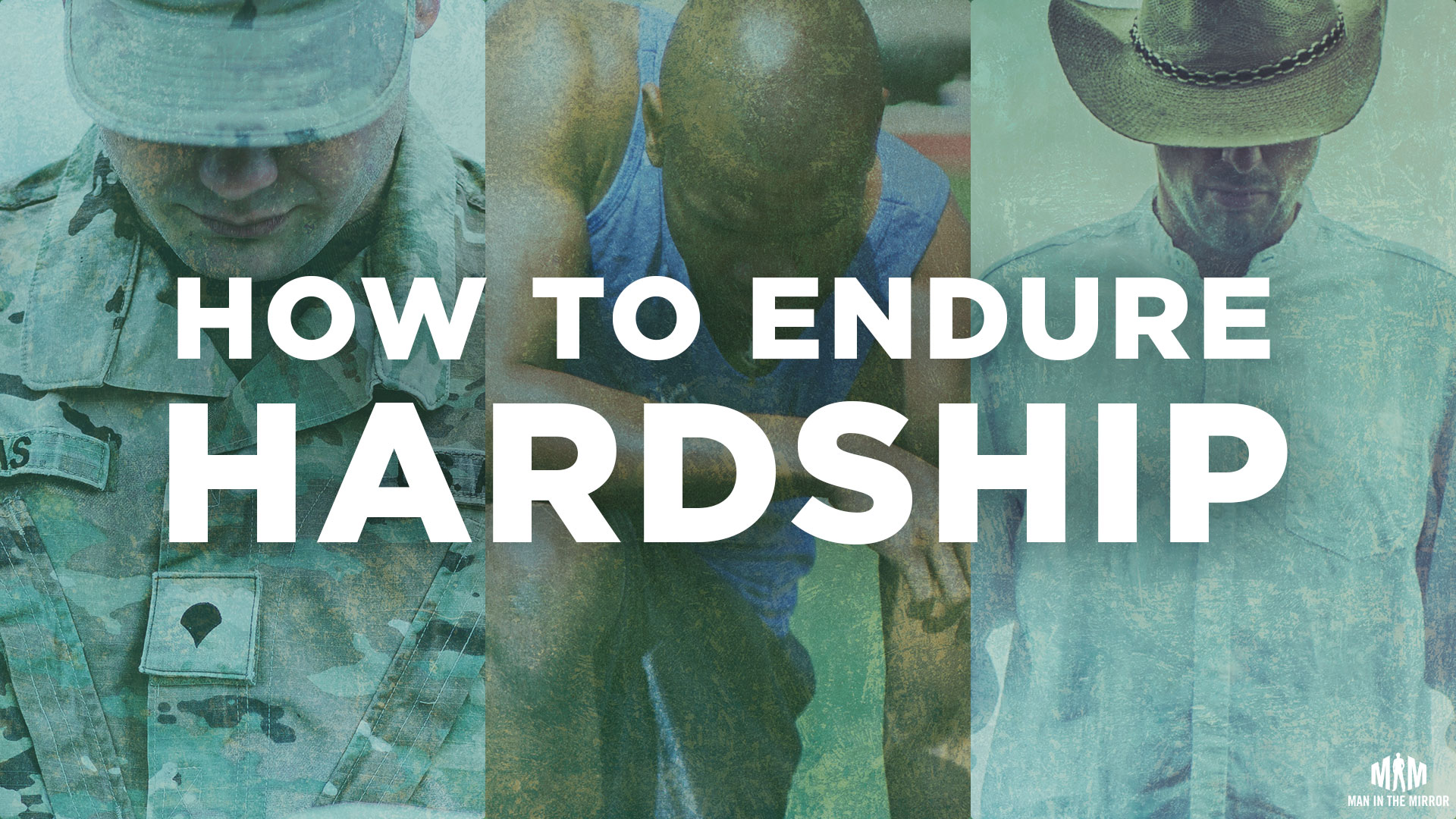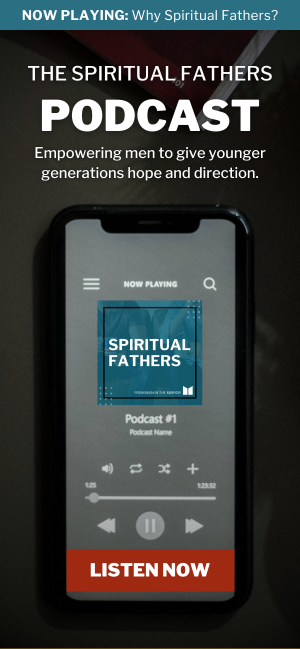How to Endure Hardship: The Soldier, the Athlete, and the Farmer
It’s clear that Paul expected Timothy to experience suffering, and we are no different. The scriptures talk about WHEN we meet trials of various kinds, not IF. How then should we prepare and train so that when trials come, we are able to endure hardship?

By Ronn Read
Field Team Chaplain
Saint Marys, Georgia
I heard a pastor say, “You’re either just coming out of a difficulty, you’re in a difficulty, or you’re about to go into a difficulty.”
That’s life. Hardships aren’t a possibility; they’re a guarantee. James 1:2 refers to “when you meet trials of various kinds,” not “if you meet trials.”
Over the last several weeks, we’ve been looking at the letter of 2 Timothy here on the blog and in the weekly Man in the Mirror Bible study. Paul is imparting the most important lessons to Timothy—his protégé, brother in Christ, and spiritual son.
In 2 Timothy 2:3, Paul writes, “Share in suffering as a good soldier of Christ Jesus.” The NKJV translates the first part of the verse as, “You therefore must endure hardship.”
'You're either just coming out of a difficulty, you're in a difficulty, or you're about to go into a difficulty.'Click To TweetJust as Paul had the expectation that Timothy would face suffering, we must expect to face it, too. How can we prepare and train then so that when hardships come, we’re able to endure?
“By endurance, we conquer.”
One of my favorite books is Endurance by Alfred Lansing. It tells the story of Ernest Shackleton’s 1915 voyage to the South Pole, where he planned to cross the continent of Antarctica on foot.
However, winter set in early, and the ship got trapped in ice in the Weddell Sea. After months encased in ice, the ship was eventually crushed and sunk.
Shackleton and his men drifted on sheets of ice for months; ate what they could kill; made do with rotting, insufficient clothing; and battled doubt, discouragement, and bouts of insanity. Incredibly, after more than a year in the Arctic, all 27 of the crew survived!
The ship’s name was Endurance, and after more than 100 years, a team found it just last month 10,000 feet under the sea—the word ENDURANCE still visible on the stern.
The ship’s name was based on the family motto of Ernest Shackleton: “Fortitudine vincimus,” which means “By endurance, we conquer.” And so that became the crew’s battle cry.
Paul is both challenging and reassuring Timothy with the same battle cry. “Share in suffering. Endure hardship. By endurance, Timothy, we are victorious.”
Attributes of Resilient Disciples
In the verses that follow, Paul encourages Timothy to endure using three metaphors—the solder, the athlete, and the farmer:
Share in suffering as a good soldier of Christ Jesus. No soldier gets entangled in civilian pursuits, since his aim is to please the one who enlisted him. An athlete is not crowned unless he competes according to the rules. It is the hard-working farmer who ought to have the first share of the crops. (2 Timothy 2:3-6)
The Soldier: Dedication
If you’ve served in the military, you probably don’t think of Boot Camp as the best experience of your life. Yet it helped train you for what you might face later, and it quickly narrowed your focus to the battle right in front of you.
Paul points out that a good soldier doesn’t get consumed or distracted by civilian pursuits. He’s dedicated fully to his training and purpose. As soldiers of Jesus Christ, we, too, need to be focused on His kingdom and not just the affairs of this temporary world.
Countless pursuits are waiting to distract or misdirect us on the battlefield. Victory in the face of hardship will only come as we stay centered on our calling, trusting the training we’ve received and the One who sends us.
The Athlete: Discipline
An athlete’s endurance is driven by discipline. When I played baseball, I took batting practice every day for as long as I possibly could. It wasn’t that I didn’t have anything better to do; it was that I knew by swinging that bat over and over, I was building muscle memory.
With the end goal always in mind, I was disciplined about doing the things that would help me reach it. I didn’t allow myself to get sidelined by taking shortcuts.
That wasn’t the case when I first ran cross-country in high school. Our coach had an old Willys Jeep Station Wagon, and the whole team would pile into the back of it. Coach would take us out a few miles, drop us off, and challenge us to make it back to campus before the buses left. It meant that if we didn’t make it, we’d be running all the way home!
At every practice in those early weeks, without fail somebody on the team would say, “Hey, I know a shortcut,” and we’d take it to get back. It might involve running through a field with bulls, or crossing a few barbwire fences, but we’d take it! Work smarter, not harder, right?
It felt great—until we hit our first meet. And we were nowhere near prepared to endure the race, because we had been taking all these shortcuts along the way. No more shortcuts after that.
Paul often uses the analogy of a race for the Christian life, and he writes about disciplined training for it. In this passage, Paul is reminding Timothy that an athlete doesn’t win if he takes shortcuts. If he breaks the rules, he gets disqualified, not crowned.
In the same way, we’ve been given rules by God to follow, and our victory depends on our disciplined determination to stay the course.
The Farmer: Diligence
Next, Paul brings up the farmer. My dad died when I was an infant, and my grandfather helped raise me. He was a farmer so I grew up on a farm in Kansas. I saw firsthand that a farmer is incredibly hardworking.
A farmer always realizes the potential of crop loss—that all the work he’s done could be washed away with a flood, blown away by a tornado, wrecked by disease, or diminished by market changes. You name it, the farmer faces it.
But his endurance is driven by diligence. He’s doesn’t get discouraged by things that are out of his control. He continues with steady plodding.
Paul is challenging Timothy to diligently keep moving forward in the face of adversity.
The Foundation: Dependence
But there’s a fourth attribute that builds resilient disciples, and it’s foundational to all the rest: dependence on the strength of Christ.
When Paul writes about endurance and contentment in his letter to the Philippians, he says, “I can do all things through him who strengthens me” (Philippians 4:13).
When you’re going through hardship and pain, God wants to empower you to endure it through trusting in Him. When we are weak, He is strong (2 Corinthians 12:10).
All of the training—the dedication, discipline, and diligence—are not meant to circumvent our need for God. They’re meant to help us rely on Him. Paul said, “On him we have set our hope that he will deliver us again” (2 Corinthians 1:10b). When we are enduring, this hope anchors our soul.
Training isn't meant to circumvent our need for God. It's meant to help us rely on Him.Click To TweetSharing in Suffering
Besides dependence, the soldier, athlete, and farmer have something else in common. They each have someone guiding them.
- The soldier looks to his commanding officer for training and direction. In times of great danger, his life may even be in his hands.
- The athlete looks to his coach to teach him the rules of the game, as well as to provide strategy and support.
- Most farmers didn’t wake up one day and say, “I’m going to go into farming. It sounds like an interesting career path.” Most farmers are farmers because their fathers or grandfathers were farmers. They looked to them to show them the ropes and work alongside them.
Men, we need each other. The truth is that hardship is relative; our difficulties are different, by God’s design. The purpose of this isn’t so we can compare our hardships to others’, nor is it so we can focus only on our own suffering.
Rather, we’re able to endure as we rely on God, and then we can comfort and guide others:
Blessed be the God and Father of our Lord Jesus Christ, the Father of compassion and the God of all comfort, who comforts us in all our troubles, so that we can comfort those in any trouble with the comfort we ourselves have received from God (2 Corinthians 1:3-4, emphasis added).
Hardship is relative; our difficulties are different, by God’s design.Click To TweetThere’s a reason why you’ve fought the battles you’ve fought and run the races you’ve run and plowed the fields that you’ve plowed.
Someone is waiting for you to walk with him through the struggles he’s now facing—and looking to you to help prepare him for the struggles he will face. Maybe it’s the soldier fighting a war. Maybe it’s the athlete pushing himself to his limits. Maybe it’s a farmer sensing another storm is on the way. Will you step into his hardship and help him endure it?
I thank God that in our weakness, He is strong, and that He gives us Pauls and Timothys along the way.
THE BIG IDEA: We endure hardship when we rely on God and on each other.
♦♦♦







